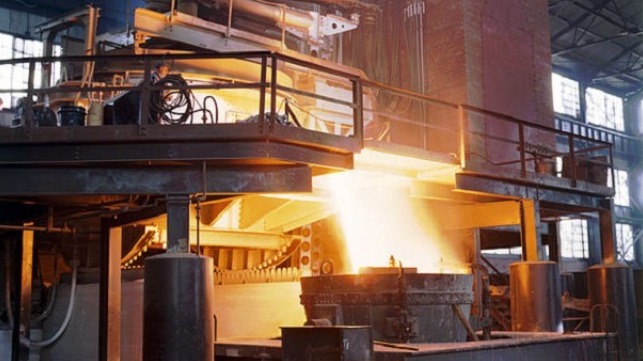Surging Steel Prices Hurt Shipbuilders While Driving-Up Scrap Values

A surge in the price of steel is beginning to have an impact across the shipping industry. Shipbuilders are expected to experience the strongest pressures, but the rise in the component price is also expected to cause an increase in the price of newbuilds and is even impacting the ship recycling sector.
Analysts have been warning that the rising steel prices would begin to impact the major shipbuilders in their second quarter results. Dow Jones for example reported that steel was leading the commodities sector higher with prices for one key segment up over 70 percent between January and June as the steel industry works to rebound from low production levels in 2020 due to the pandemic and a sudden increase in demand this year.
One of the first indications of how the steel price increase could impact shipbuilders came from Korea Shipbuilding & Offshore Engineering Co., one of the leaders in the industry. On July 21, KSOE reported a strong loss for its financial results in the second quarter of 2021. While the company’s orderbook has surged this year and its backlog stretches to the end of 2023, the company reported a net loss in the quarter of more than $626 million due to a provision for rising steel costs.
Korean news agency Yonhap is reporting that KSOE swung to an operating loss versus a profit a year ago despite the slowdown in shipbuilding last year due to the pandemic. The operating loss was three times more than the average estimate, according to a survey by Yonhap Infomax, the financial data firm of Yonhap News Agency.
"The main reason for the huge net and operating losses was due to increased cost from a surge in prices of steel plates," KSOE said in a statement to Yonhap.
To address the impact of the rising steel costs and its future impact on profits, KSOE recorded a $780 million one-time provision for the cost of steel. “We’re expecting steel plate prices to range between 1 million won and 1.15 million won (approximately $869 to $1,000) per ton in the second half,” said KSOE. They forecast that results would rebound in the second half of 2021 based on the current provisions and outlook for the price of steel.
At the other end of the life cycle, GMS, a leading buyer for ship recycling, reported this week that the strong steel demand was also contributing to a surge in prices being paid to recycle ships. They highlighted that prices were rising to levels not seen in more than 12 years with scrapping rates for containerships passing a psychological barrier of $600 per ton last week. Rates for bulkers and tankers also rising. GMS said in 2008 rates rose as high as $800 per ton before crashing down.

that matters most
Get the latest maritime news delivered to your inbox daily.
The strong steel demand is combining with a general lack of ships available for scrap to drive up the recycling prices. With demand strong in most segments of the shipping industry owners have been reluctant to sell ships for scrapping. In the containership segment for example less than 10 percent of the capacity scrapped in 2020 has been sold for demolition this year. Even old ships are finding charter deals to keep them in service.
Analysts at UBS have forecast that the price surge in steel will continue into 2022.
